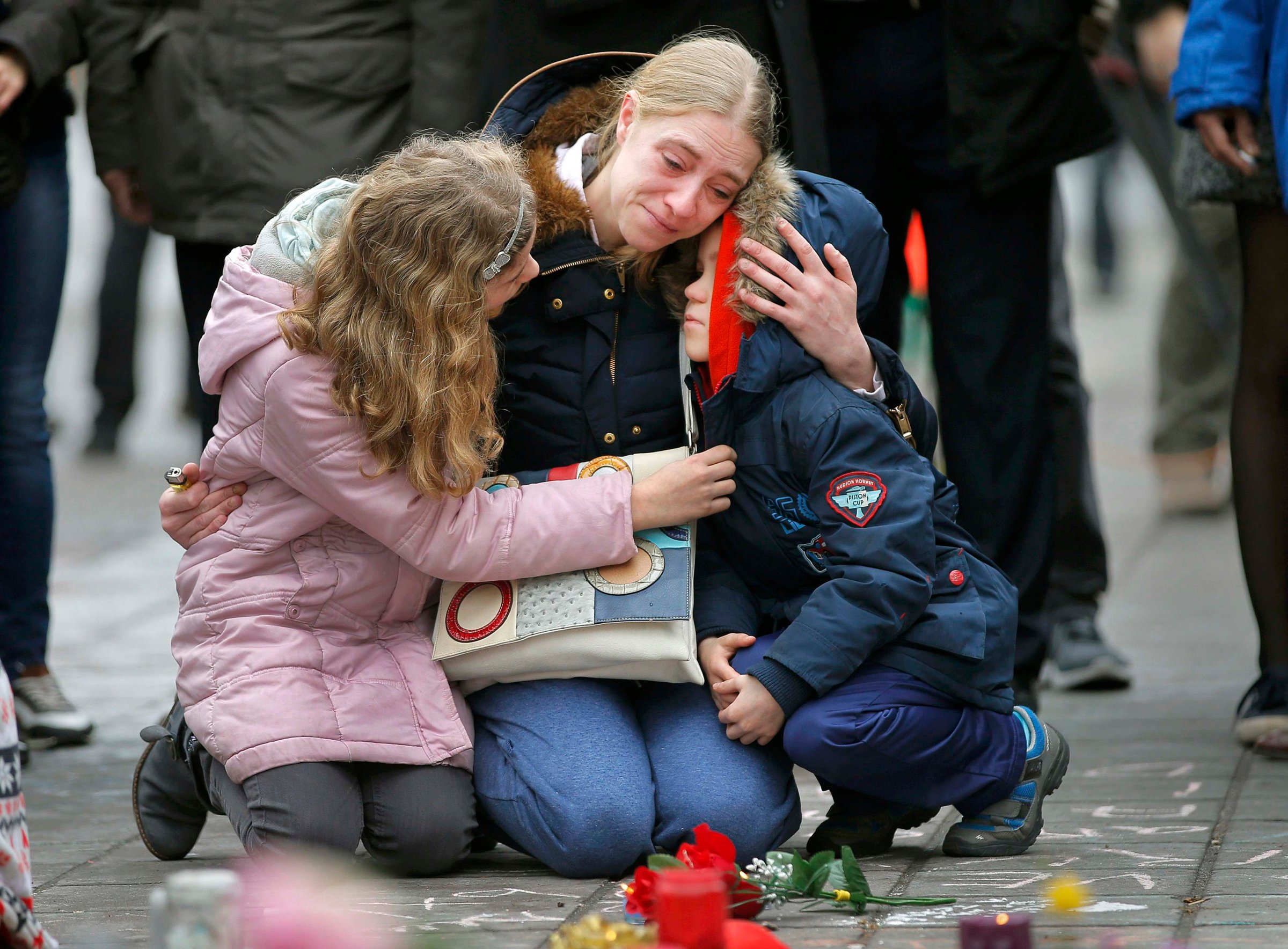
The AP reported on Tuesday that world leaders expressed “shock” at the Brussels attacks, which killed at least 34 and injured 270 others, but that can’t possibly be right. The Belgians are hurt and scared and grieve the terrible loss of their dead, but the world shouldn’t be surprised anymore.
The hard lesson of the last 15 years is that there is no preventing these attacks in the aggregate. Yes, the Belgian authorities appear to have been inept at tracking and finding suspected jihadists, a bureaucratic jumble akin to the pre-9/11 American intelligence apparatus, though Brussels faced a turf divided by region and language as opposed to budget and department. But no matter the particulars of this case, we’ve learned the limits of our Western security apparatus. Individual targets—soccer stadiums, government offices—can be defended, and special events can receive extra attention, but as a general rule, train stations, concert halls and cafés will never be completely secure.
Any comprehensive lock-tight solution is anathema to the kind of country Westerners wish to live in. Should backpacks no longer be allowed on subways? Bags at the airport check-in desk? How far out do you move the TSA line?
Right-wing demagogues answer that question this way: the nation’s border. For a year, European news headlines have been filled with news of refugees and suicide bombs. Despite what some politicians might argue, one is not the cause of the other; both are symptoms of the same jihadist disease. You might as well blame the headache for the fever, but we live with both until we find a cure.
Routines provide some comfort, and we know the drill at this point: a claim of responsibility, the identification of the attackers, a manhunt for those responsible who survived. Some of those pieces have been put in place: ISIS, the Bakraoui brothers, the third man in the fedora pushing the cart. This search could stretch for some time; Salah Abdeslam, a suspect in the November Paris attacks, was just captured just five days ago.
On Tuesday, French Prime Minister Manuel Valls said: “We are at war. We have been subjected for the last few months in Europe to acts of war.” But we in the West recoil from a perpetual war footing. Similar attacks in Beirut and Turkey have faded from the news. Over the last several months, nearly 200 have died across Turkey, from a series of suicide and car bomb blasts. #JeSuisBruxelles was trending on Twitter yesterday, but I never saw a Turkish equivalent.
It seems we cannot stare too long at the carnage, so we put our heads down and wish them away. For how long? History is a useful guide. The last prolonged European terrorist bombing campaign—prior to the jihadist gambit that began in March of 2004 in the train bombing in Madrid and that has ramped over the last several years—was the wave of leftist attacks in the 1970s and ‘80s.
When I joined the U.S. military in 1999 and began my counter-terrorism training, these were the case studies: 17N, ETA, Black September, the Baader-Meinhof Gang and Red Army Faction, with assistance from the Palestine Liberation Organization. Most barely remember these organizations, but for decades, they set Western Europe on edge. These were the days of Carlos the Jackal, airliner hostages, nightclub bombings, the Munich Olympics. Leon Klinghoffer was shot in his wheelchair and tossed overboard into the Mediterranean.
The comparison is one of type, not scale; more Belgians died Tuesday than in the Red Army Faction’s entire two-decade campaign. But in both cases, European citizens under the sway of an exterior ideology incompatible with the liberté of the continent took up arms against their countrymen to affect violent societal change. They were arsonists and shot into crowds and placed hidden bombs on trains. That they were Marxists, Leninists and Communists (or Arab nationalists taking their money) is secondary; the security challenge for local authorities was the same.
How were they ultimately stopped? Not through police raids or concrete security barriers or boots-on-the-ground in another country. Instead, their core principals were discredited, and they could recruit no more martyrs for the cause. Communism fell. The Cold War ended. The terrorist organization’s sponsors collapsed. In April of 1998, the Red Army Faction sent a letter to Reuters: “Today we end this project. The urban guerrilla in the shape of the RAF is now history.”
Bombings are the new normal, until jihadism follows its predecessor into the dustbin. The world is waiting.
More Must-Reads from TIME
- How Donald Trump Won
- The Best Inventions of 2024
- Why Sleep Is the Key to Living Longer
- Robert Zemeckis Just Wants to Move You
- How to Break 8 Toxic Communication Habits
- Nicola Coughlan Bet on Herself—And Won
- Why Vinegar Is So Good for You
- Meet TIME's Newest Class of Next Generation Leaders
Contact us at letters@time.com